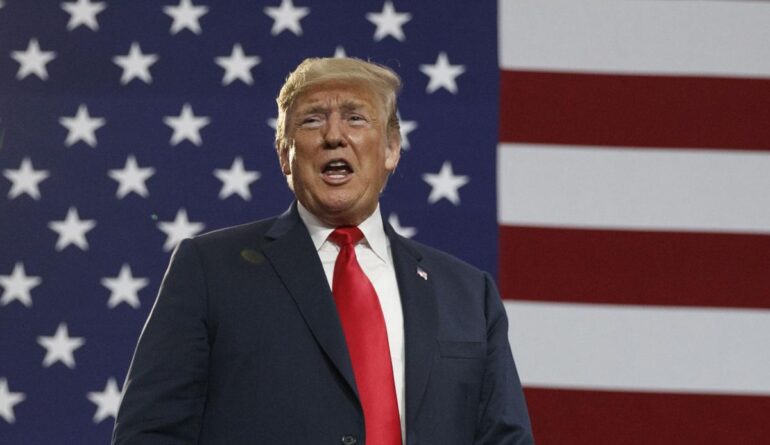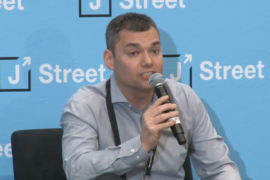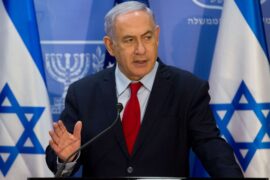United States President Donald Trump said Tuesday that his administration’s new plan for the Middle East would demand a “high price” from Israel in return for the US moving its embassy to Jerusalem.
Positioning his administration in the role of parent to two difficult children, the president added that the Fatah-led Palestinian Authority would “get something very good” in return for the embassy move “because it’s their turn next.”
Speaking at a campaign rally in Charleston, West Virginia, Trump said that since Jerusalem is now “off the table,” Israel will have to give something in return to the Palestinians.
“If there’s ever going to be peace with the Palestinians, then this was a good thing to have done,” Trump said regarding the embassy move.
“We took it off the table. In past negotiations, they never got past Jerusalem becoming the capital. So I said ‘let’s take it off the table’. And you know what? In the negotiations, Israel will have to pay a higher price, because they won a very big thing. But I took it off the table.”
“But they [the PA] will get something very good next, because it’s their turn next. We’ll see what happens. It’s very interesting.”
The Trump administration said last week that neither Israelis nor Palestinian would be “fully pleased” with its long-awaited plan for the country, whose contents are one of the most guarded secrets in Washington.
Jason Greenblatt, Trump’s special envoy to the Middle East, tweeted a statement from multiple officials that said the only way to achieve a final-status accord was for both parties to accept painful compromises.
“No one will be fully pleased with our proposal, but that’s the way it must be if real peace is to be achieved,” the officials said. “Peace can only succeed if it is based on realities.”
The quote was attributed to Greenblatt, US Ambassador to the United Nations Nikki Haley, US Ambassador to Israel David Friedman and Trump’s son-in-law and senior adviser Jared Kushner.
Trump officials have said they are finishing the plan and working on rolling it out, but have not offered any timeline.
By pushing a plan Trump’s people acknowledge “no one will be fully pleased with,” the administration is repeating one of the major mistakes underlying all previous attempts at ending the conflict. Forcing Israelis and Palestinians to accept compromises to our aspirations and national narratives simply can’t succeed.
What the international community has had trouble understanding until now is that Israeli-Palestinian peace can’t be achieved by forcing each side to concede on issues vitally important to us. Peace can only come through reaching a solution that allows Israelis and Palestinians to fully experience victory according to how victory is defined in each of our respective narratives. And this is most likely to happen if we exclude foreign powers from the process.
Israelis and Palestinians must collectively resist Washington’s top-down solutions and examine the respective needs of our peoples here. By unpacking each people’s set of aspirations and grievances and examining the core national narratives of each side, we can work towards the creation of a larger narrative inclusive enough to encompass both ostensibly rival narratives.
The goal shouldn’t be to meet in the middle, with each side continuing to feel justifiably resentful of the other, but rather winning together through a solution that allows us to transcend the conflict’s destructive either/or paradigm.
The new American plan isn’t different from previous imperialist attempts to partition our country into two states. The significant difference may lie in Trump’s belief in his own ability to bulldoze it through Israeli and Palestinian opposition.
The president has spent months positioning all the parties for a successful implementation of his plan.
By moving the US embassy from Tel Aviv to Jerusalem in such an ostentatious and divisive manner that played in the international press as a major Israeli diplomatic triumph over the Palestinians, Trump and his team have fostered a political atmosphere in which Israel owes Washington big.





